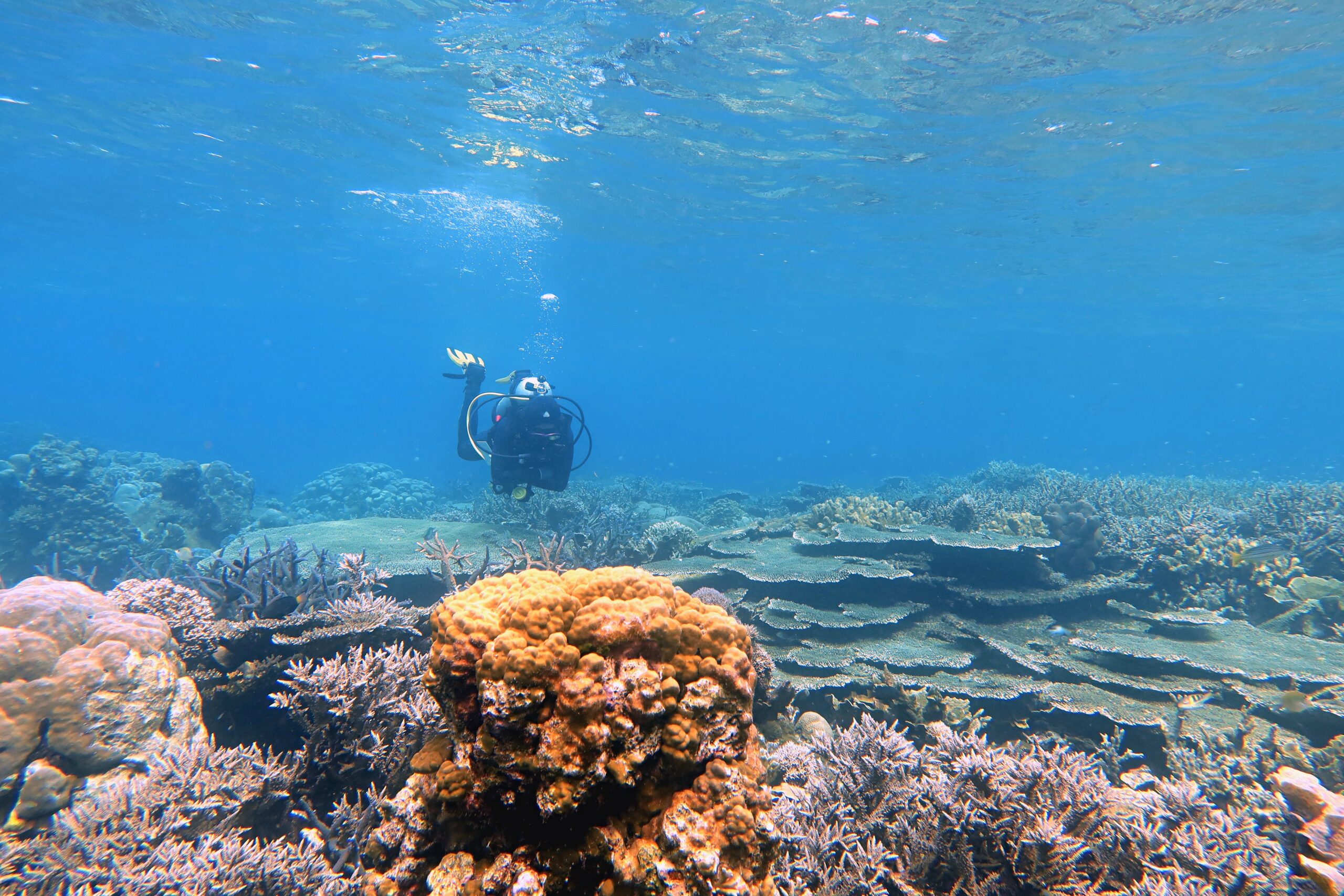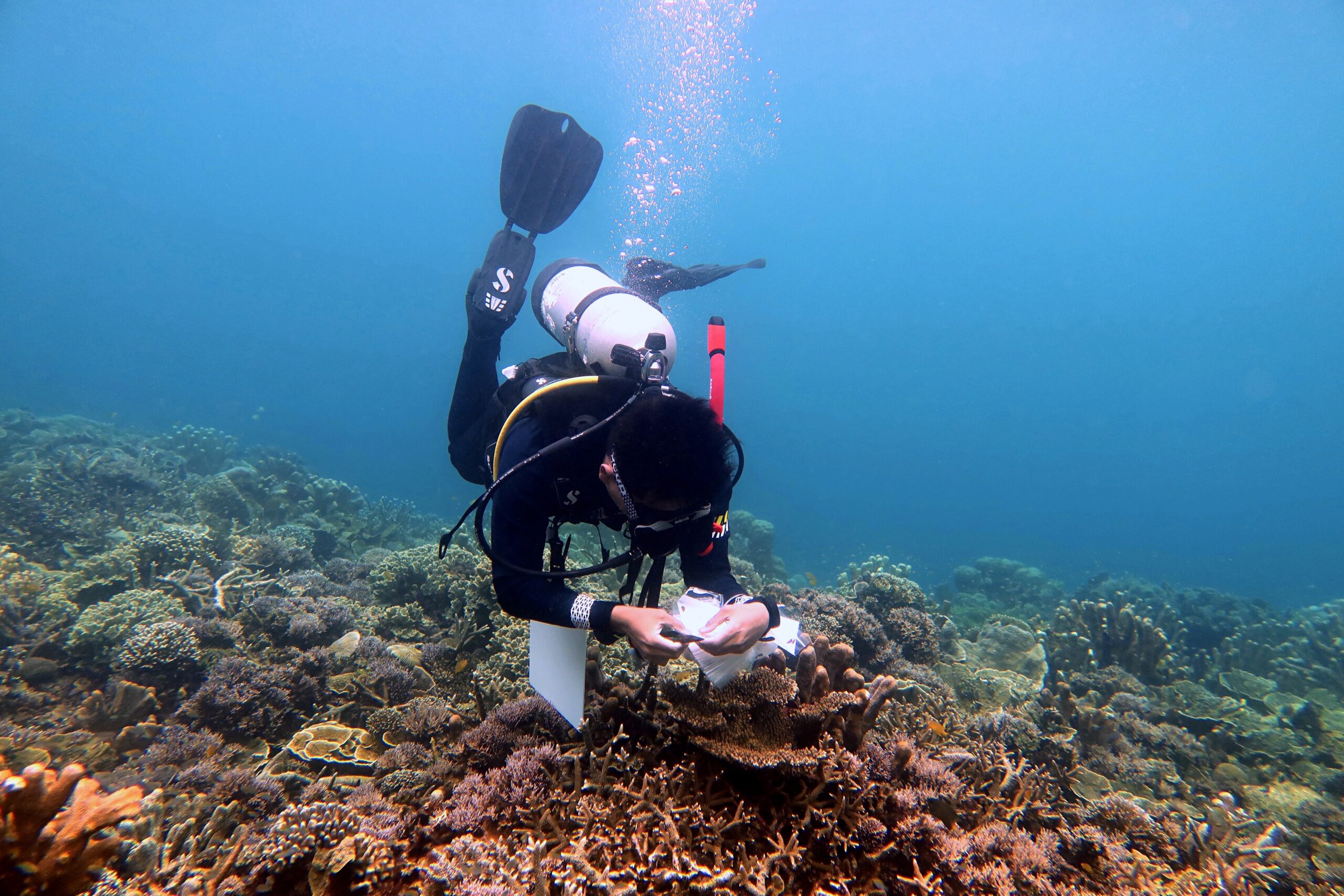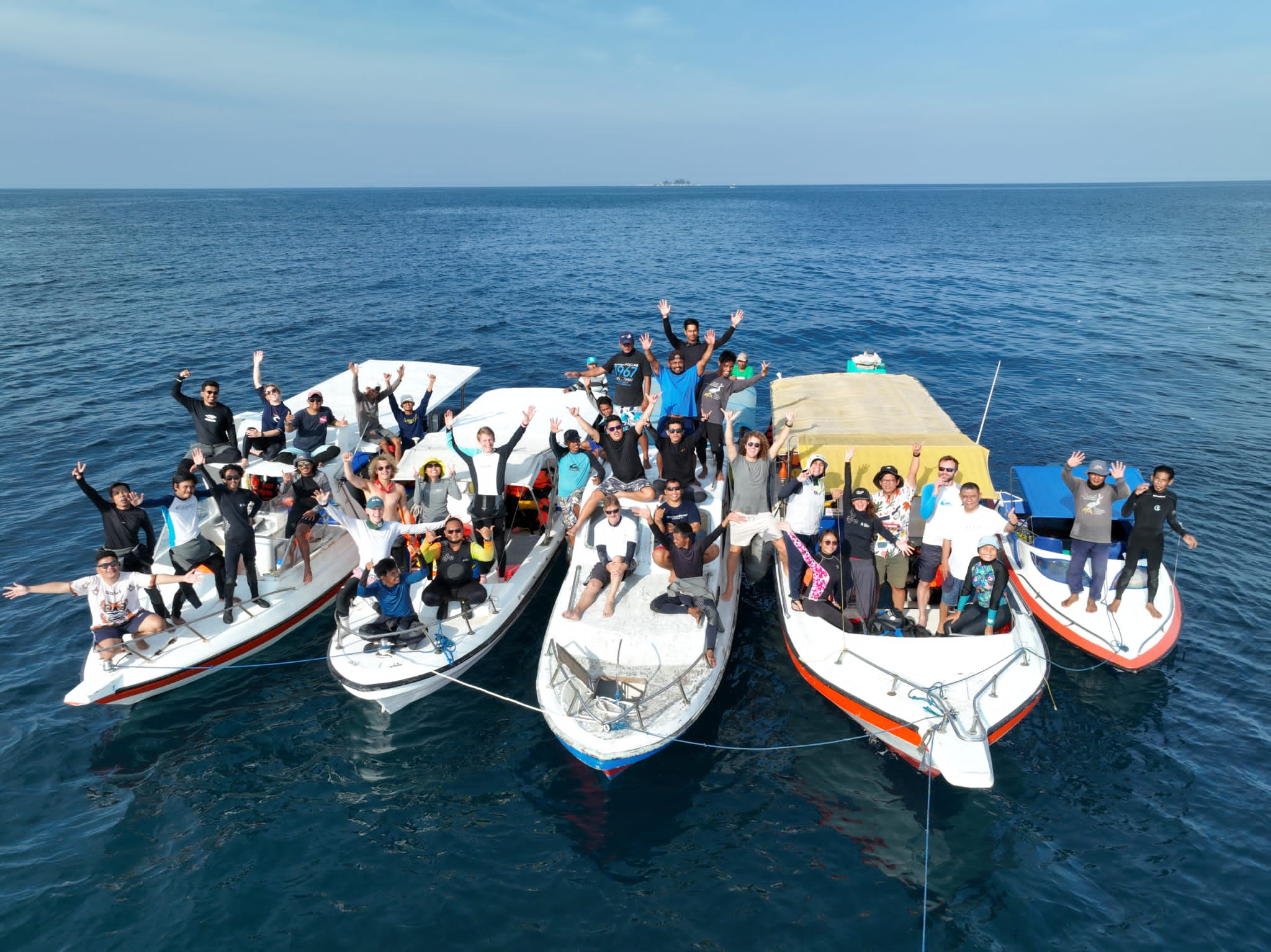Illuminating Genetic Diversity of Corals in The Most Diverse and Biologically Complex Marine Ecosystem on Earth – The Coral Triangle
I am Adib Mustofa, a first-year PhD student in Dr. Carly Kenkel’s Lab and in USC’s Marine and Environmental Biology program. I have been in love with coral reefs since 2010 when I joined a sailing program in the Spermonde Archipelago located in South Sulawesi, Indonesia. During this program, I had a chance to snorkel and see magnificent coral reefs for the first time.
In 2016, I scuba dove in different parts of Indonesia and found an extensive area of damaged corals. That experience encouraged me to study coral reefs and take action to protect this vulnerable ecosystem. Two years later, I initiated a coral restoration program in my hometown, Lampung Province. Our team transplanted corals in a steel substrate and within a year, the corals grew quickly; we are so happy with this program’s outcomes.
However, the more I read about current studies on corals, I realized that we still have a lot of things to do to make our efforts in protecting this species more efficient and effective. Particularly, I became interested in the genetics of corals. As we transplant the coral, we break the coral into smaller fragments–a process known as fragmentation through asexual reproduction. This method can produce fast-growing corals but can also possibly lead to low genetic diversity of the species. When coral with low genetic diversity face a rapidly changing environment–like we are experiencing in this year’s hot summer–they may all respond in a similar way. Thus, understanding the genetic diversity of corals is vital to inform better management to conserve this important ecosystem.

My research aims to investigate the genetic diversity and connectivity of coral species in Indonesia’s Coral Triangle region, which home to the most diverse coral species in world. Most coral studies in the region focus on the coral covers, while only a few studies explore the genetic aspects of corals in this region. This genetic study can help us improve management and conservation efforts in this region because it can tell the adaptive potentials of the species in the face of climate change. In this we use Acropora hyacinthus (a branching tabulate coral that can be easily found in most Indonesian regions) to investigate how genetically distinctive the species is across Indonesian waters.
Indonesia consists of more than 17,000 islands and is divided into three regions: west, central, and east. This summer, we aim to collect coral samples in at least four different sites representing west and central Indonesia: South Sulawesi, Lampung, Lombok, and Bali. Until early July, I have been collected samples from South Sulawesi and Lampung, and from mid- to the end of July, I collect samples from Bali and Lombok. More than 300 coral samples from across Indonesia water will be collected during my fieldwork.

I thank the Wrigley Institute for my fellowship opportunity. It is such an honor to know and interact with the Wrigley-affiliated individuals, other Wrigley Graduate Fellows, and speakers during our spring cohort events. I am also grateful that I can collaborate with many scientists from several countries. In South Sulawesi, I had an opportunity to collaborate with scientists from the Indonesian Research and Innovation Agency (Dr. Tries Razak), the University of Lancaster (Dr. Nick Graham and Dr. Timothy Lamon), the University of College London (Ben Williams), and the University of Exeter (Dr. Ines Lange). In Bali, I collaborated with an NGO, Yayasan Biodiversitas Indonesia (BIONESIA), to process DNA extraction prior to transporting the sample to the U.S. Finally, I also thank MARS Coral Reef Restoration (Sheba Hope Grows) and the North Bali Reef Conservation for accommodating sample collection in South Sulawesi and North Bali.
Through this fieldwork trip, I now know a little bit more about the coral reefs conditions in my home country. This research experience has also taught me to collaborate with other scientists, manage logistics and supplies for a fieldwork trip, and solve unexpected problems that occur during fieldwork. More importantly, through this fieldwork I have built a strong network among scientists and practitioners working to understand coral reefs in the Coral Triangle that I believe will benefit me in my future career.
Adib Mustofa is supported by the USC Dornsife Wrigley Institute Graduate Fellowship.

